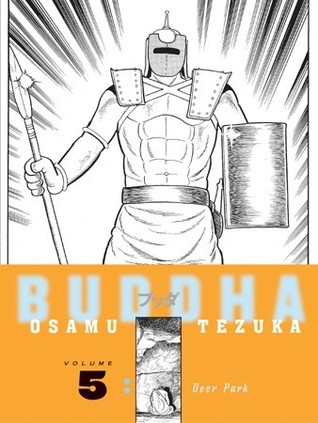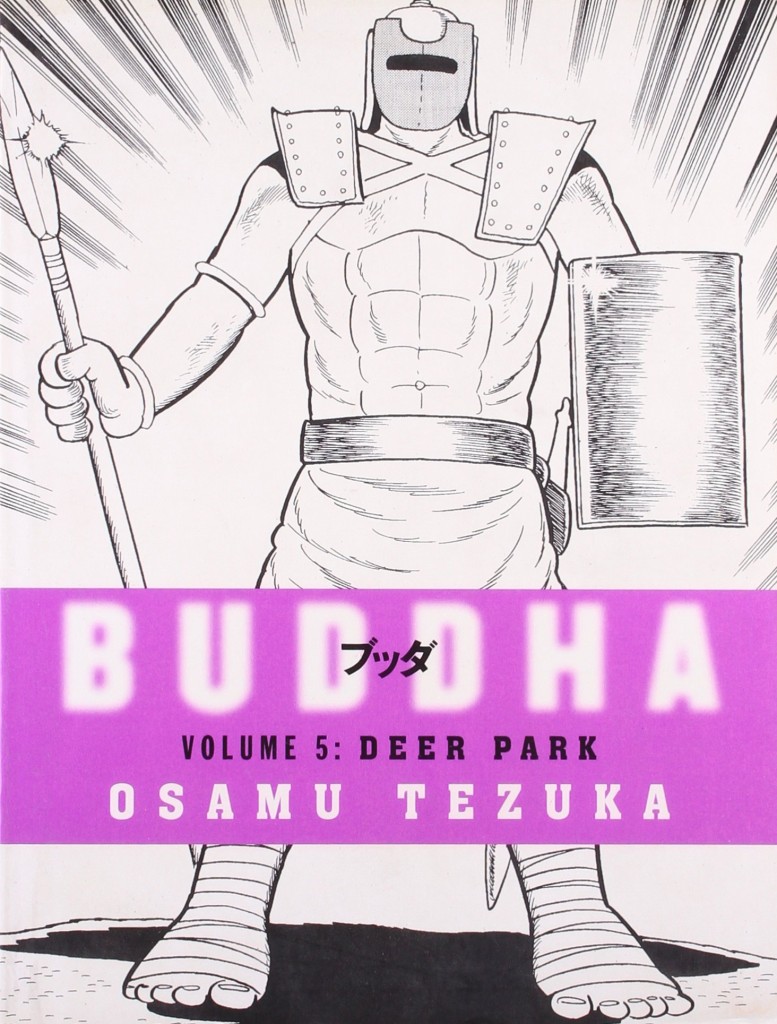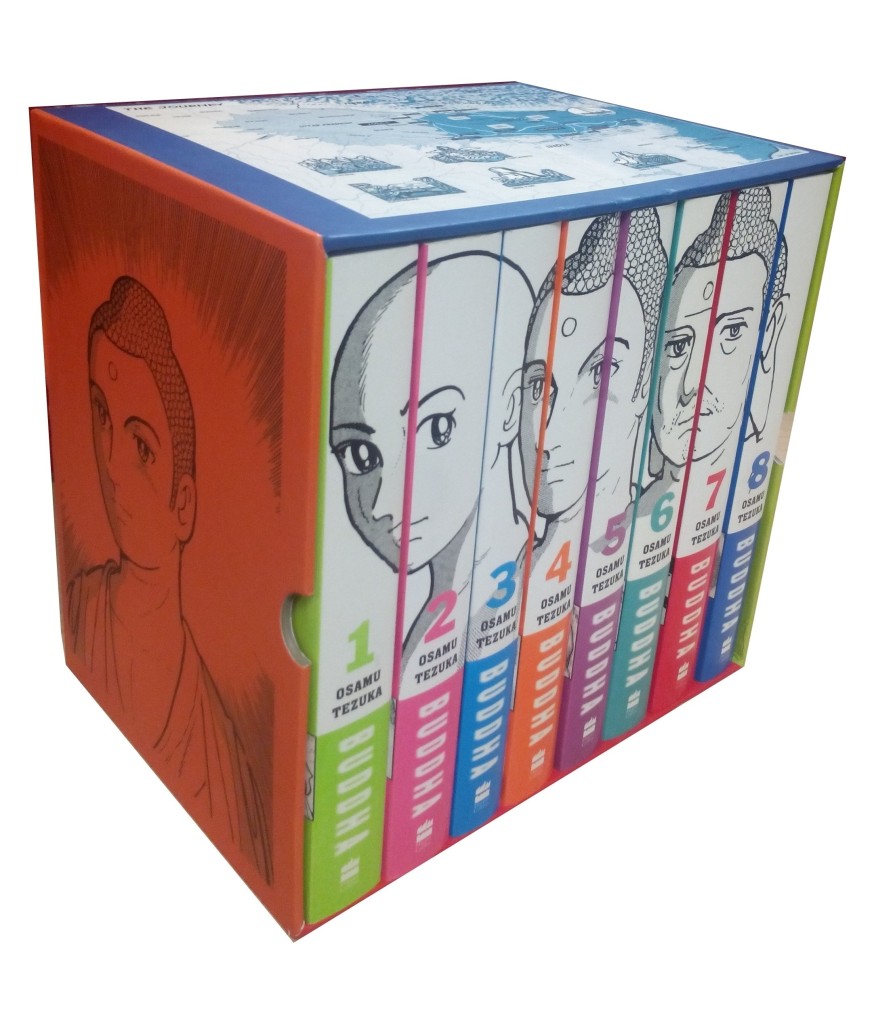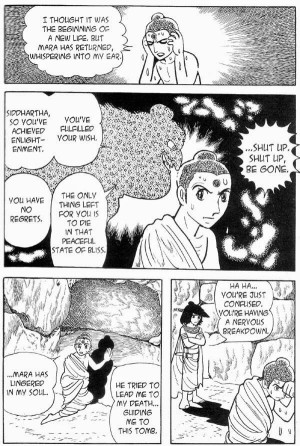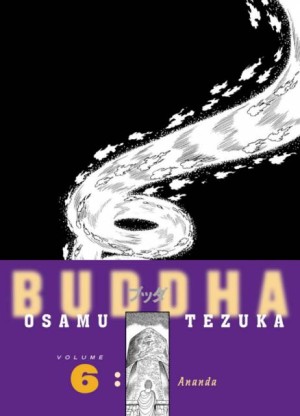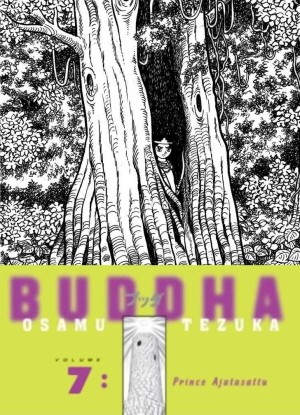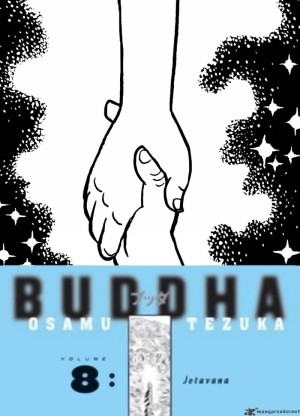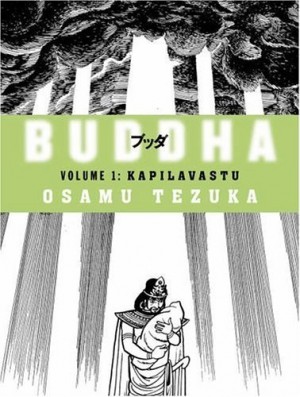Review by Rob Walton
Nobody ever said enlightenment was going be easy, and volume 5 of Osamu Tezuka’s eight volume life of Buddha proves that Siddhartha’s trials did not end beneath the branches of the Bodhi tree.
Chapter One reintroduces us to Devedatta, the dispossessed son of the warrior-king, Bandaka, who was killed in battle on the eve of his son’s conception. Like his father, Devedatta craves power and its lifestyle accouterments. Being little more than a beggar at the beginning of the story, he gets the idea to win his fortune through managing a great warrior, who turns out to be none other than the lovable rapscallion, Tatta! The brigand is happy to take on the warrior’s role if it means killing the Kosalans responsible for the murder of his family. In order to win the king’s favor, Tatta must kill a mad elephant, but when Tatta shows the elephant mercy, Devedatta is driven to confront the monk who had taught his warrior to show such weakness. Thus begins a long confrontation between Devedatta and Buddha.
Meanwhile, the two kingdoms of Magadha and Kosala have decided to pit their strongest warriors against one another to settle their claims over disputed lands. The contest sets two disciples of Buddha against each other: Tatta, for Madadha, and the giant, Yatala, for Kosala.
As for Buddha, after battling Mara in the wilderness of his soul, he emerges from his cave to begin a life of teaching. His first disciples are the deer of Deer Park. Slowly he begins to draw both allies and enemies into his forest congregation.
In Deer Park, Buddha is brought into conflict with both himself and the world. The teachings of the Buddha have unexpected consequences, and do not always sow the seeds of compassion. Buddha must teach by example as well as by sermons, and Buddha’s actions speak louder than his words. The power of Tezuka’s narrative doesn’t waver as Buddha puts enlightenment into practice. The Buddhist respect for all beings is evident throughout this volume as Buddha is called on to show compassion to both humans and animals. All beings suffer life’s harshness, yet it is in direct contrast to this harshness that Buddha’s teachings shine the greatest light. As with previous volumes, Deer Park has a power to transcend the page and impart its lessons in the reader’s heart, dispelling the darkness of Mara’s ever-present self-destructive influence.
